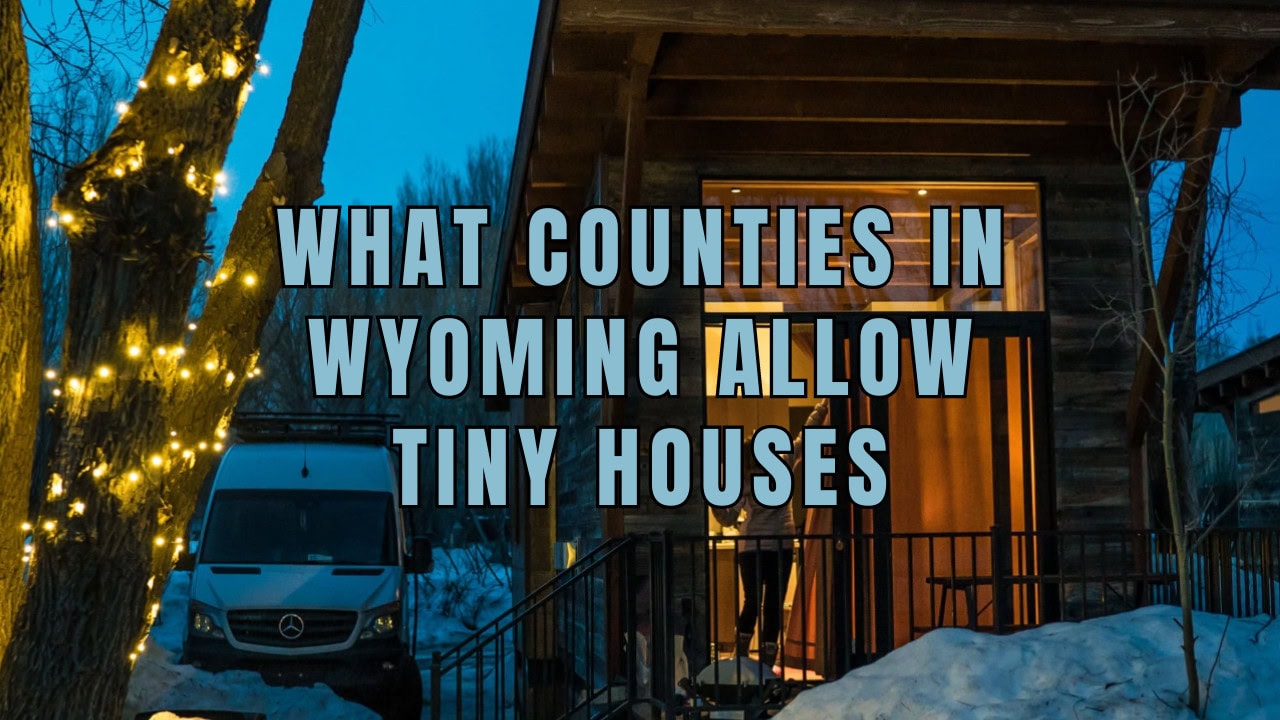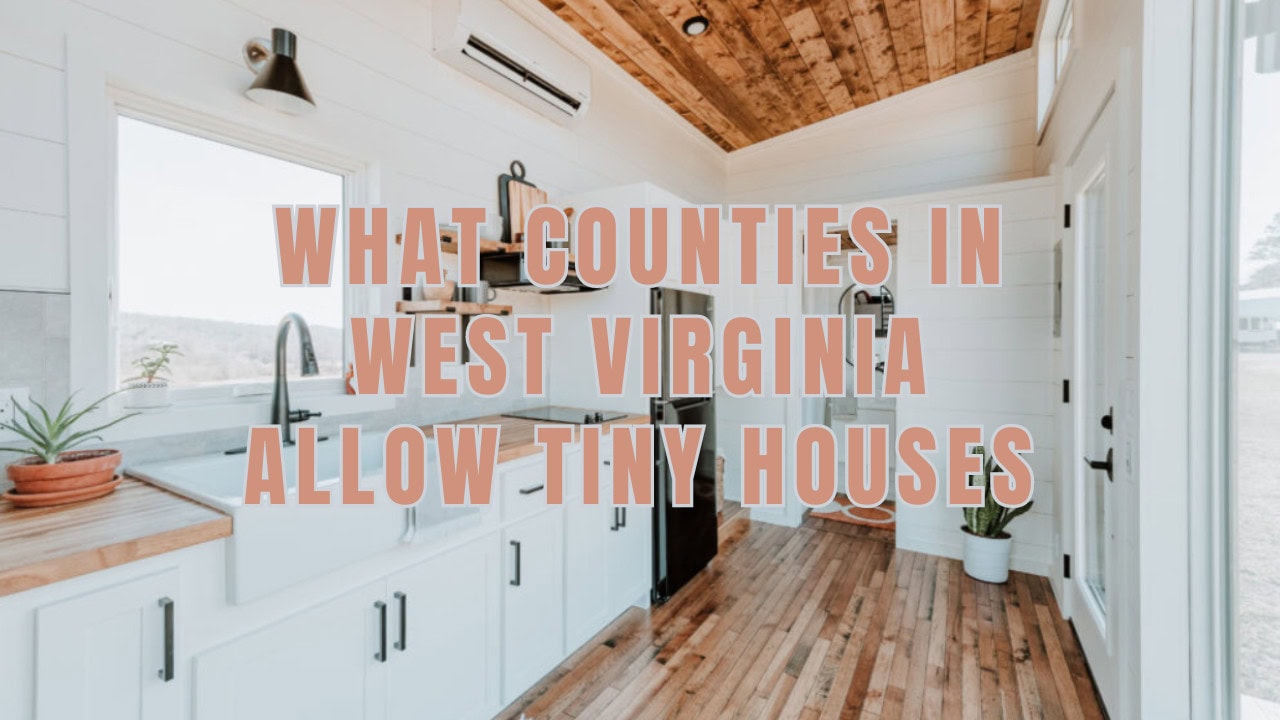Are you a fan of the tiny house movement and looking to settle down in Kentucky? Before you start building your tiny dream home, it’s important to be aware of the rules and regulations in place. The state of Kentucky has varying guidelines for tiny house construction and placement that you need to consider.
In this article, we will explore which counties in KY allow tiny houses and what rules and regulations you need to consider before setting up your tiny home.
Tiny House Prices in Kentucky
You’ve started your home project and are asking about price alternatives that meet your budget and your tiny home ambitions.
Wonderful news! We have a solution for every living style and budget to get you one step closer to your dream home. Look into Kentucky tiny houses for sale.
What Counties in Kentucky Allow Tiny Houses?
Kentucky does not have statewide rules designed specifically for tiny homes. Instead, county governments determine the legality of living in a tiny house. It means that the restrictions might vary widely from one county to the next, necessitating extensive study before moving forward with their tiny house ideas.
Jefferson County
Jefferson County, which includes the thriving metropolis of Louisville, has made substantial efforts to accommodate small dwellings. They have amended their legislation to incorporate Accessory Dwelling Units (ADUs) and numerous tiny dwellings. Jefferson County has opened the path for small home aficionados to discover legal dwelling alternatives within its bounds by legalizing ADUs.
Fayette County
Lexington, the hub of the Bluegrass Region, is located in Fayette County, which is open to conversations concerning tiny houses. While particular rules may differ, it is worthwhile to investigate local zoning laws and speak with county officials to learn more about the possibilities for small-home living.
Tiny House Regulations And Rules In Kentucky
Tiny homes in Kentucky are in two categories: those with wheels and those with foundations. Tiny houses on foundations must correspond to the Kentucky Building Code, while tiny houses on wheels need to meet Recreational Vehicle Industry Association (RVIA) regulations.
Tiny dwellings, regardless of style, follow standard building and zoning regulations. Several kinds of small houses are allowed in the Louisville Metro area: prefabricated, mobile home, portable, on-site, and modular. On a stable foundation, tiny houses used as single-family residences are permitted.
Permanent Structure Rules
Tiny houses built on fixed foundations are the same as standard residences in Kentucky. They must adhere to the Kentucky Building Code and review it like any other home application. It implies that if you want to build a small house on a foundation, you’ll need to go through the same steps as you would for a bigger house, such as acquiring the required permissions and inspections.
Tiny home-planned development units are in some regions, such as the R-3 Zoning District, with laws requiring a maximum density, a minimum spacing between residences, and the supply of parking spaces and communal open areas. These units must also comply with any applicable housing or building rules, and the Planning Commission may impose additional requirements to preserve public health, safety, and welfare.
Temporary Structure Rules
Tiny houses on wheels (THOWs) are less permanent than foundation-based homes and are frequently subject to various restrictions. THOWs are not as recognized in Kentucky as permanent foundation houses. However, in regions such as Louisville Metro, numerous forms of tiny houses, including THOWs, are legal as long as they meet the applicable requirements.
Transitional Structure Rules
Kentucky has various choices for people wishing to live in a tiny house temporarily or with the freedom to move. While there are no state laws forbidding the construction of tiny houses, they follow standard zoning and construction regulations.
Connections to the electric grid are more permissive in rural spaces, and off-grid sewage systems are forbidden. Due to the lack of severe construction rules in many parts of Kentucky, living in RVs or tiny homes is permitted. However, many counties demand that even modest residences have sturdy foundations.
In Kentucky Where Can I Build A Tiny House?
In Kentucky, tiny homes must follow the Kentucky Building Code, which includes regulations for ceiling height, windows, plumbing, stairs, and emergency exits. It is crucial to remember that zoning restrictions will vary depending on location; therefore, contact local authorities to learn the precise requirements for the region where you intend to build or park your tiny house.
Choose a certified tiny house builder to guide you during the process, manage all the paperwork, and ensure your residence complies with building codes.
Building a tiny house is a big project and does not need to be stressful if you plan accordingly. The typical places for tiny houses include the following:
- Private properties
- RV parks
- National Parks and campgrounds
- Tiny house communities
Tiny House Communities in Kentucky
Some Kentucky municipalities look at small home villages, which might provide a more controlled setting for tiny house living. For example, there are proposals in Louisville for a small home community for homeless veterans and an endeavor in Harlan County to develop a community for homeless students and those who have completed drug rehabilitation.
Zephyr Creek Crossing
Zephyr Creek Crossing is a community of purposeful living close to Richmond, Kentucky. This town is 40 miles south of Lexington and around 10 miles off I-75. Residents may go to work and shop in the city without sacrificing their daily rural sanctuary.
Sometimes, the people living in Zephyr Creek sit down to meals together, have conversations over coffee, or work together to accomplish daily duties. Some amenities are a shared house, garden, orchard, carpooling, library, workshop, outbuilding, spacious kitchen, laundry, agricultural equipment, fire pit, and internet.
Bluegrass Tiny Ridge Community
Central Kentucky is home to the stunning scenery that surrounds Bluegrass Tiny Ridge. This non-smoking, adult-only tiny home neighborhood is the ideal retreat for your small home. Vast farmland surrounds Bluegrass Tiny Ridge with undulating hills and fauna, making it a tranquil and picturesque location.
Situated on a ridge, the four sites provide stunning views of verdant meadows and picturesque countryside. The town square of Lancaster, Kentucky, is only a short two-mile drive away.
Tiny House Builders Near Me
Kentucky folks choose to live in tiny houses for a variety of reasons! The Bluegrass State offers affordable housing, a wealth of outdoor activities, breathtaking scenery, and delectable local food. Make it your home.
You don’t need to search for a builder near you because Great Lakes Tiny Homes help you locate your perfect home by offering a variety of tiny house designs with countrywide delivery, saving you time searching for local builders.
Also, you need to know that Great Lakes Tiny Homes is an RV Industry Association (RVIA) builder. Passionate about the highest production standards and rigorous compliance with the building, safety, and regulatory rules for small houses.
Do I Need a Certified Builder?
Of course, you need one. Perhaps you consider the DIY approach, but the risks are higher and the results are uncertain.
For that reason, working with an RVIA-certified builder (like Great Lakes Tiny Homes) will ensure you own a tiny house manufactured according to laws, rules, and regulations. Also, it assures the materials needed in your residence are safe, durable, and of top quality.
Working with a competent builder also gives you easier access to insurance and financing, among other perks. It gives you compliance with RVIA standards since it certifies your tiny house is a safe and habitable environment.
FAQs
Can You Make a Tiny House in Kentucky Your Main Residence?
It is possible to live in a tiny house permanently in Kentucky. However, consider the local rules and regulation variations.
The most effective action is to find out whether your small home complies with all applicable laws and regulations, including inspection requirements, by contacting your local zoning and authorities.
To get the benefits of a more straightforward, environmentally friendly life in Kentucky, do your research and collaborate with licensed builders.
What Occurs in Kentucky if I Am Not Granted a Tiny Home Permit?
You will be penalized if you start building your small house without obtaining the required building permits. The entire cost will be the same as Louisville’s usual permit price, with a $500 minimum.
However, there is a $1,000 minimum cost for not obtaining electrical permits. You need to pay the penalty cost and the first building permit price. The precise amount of penalty fines may vary depending on your local jurisdiction.
In Kentucky, How Many Square Feet Is Required to Consider a Tiny Home?
There is no minimum size restriction for small houses in Kentucky. Nonetheless, states follow the 2018 IRC, which stipulates that tiny homes need to be 120 square feet or more.
Conclusion
For many options for small homes living in Kentucky, county-specific restrictions differ significantly. Prospective tiny homeowners ensure they are ready to build, park, and occupy a small home, so they should thoroughly study local legislation.
Although some counties, including Jefferson, Fayette, and Pulaski, have expressed support for small dwellings, remember that laws are still changing in these places. Before moving on with small home ideas, always verify the most recent local ordinances.





